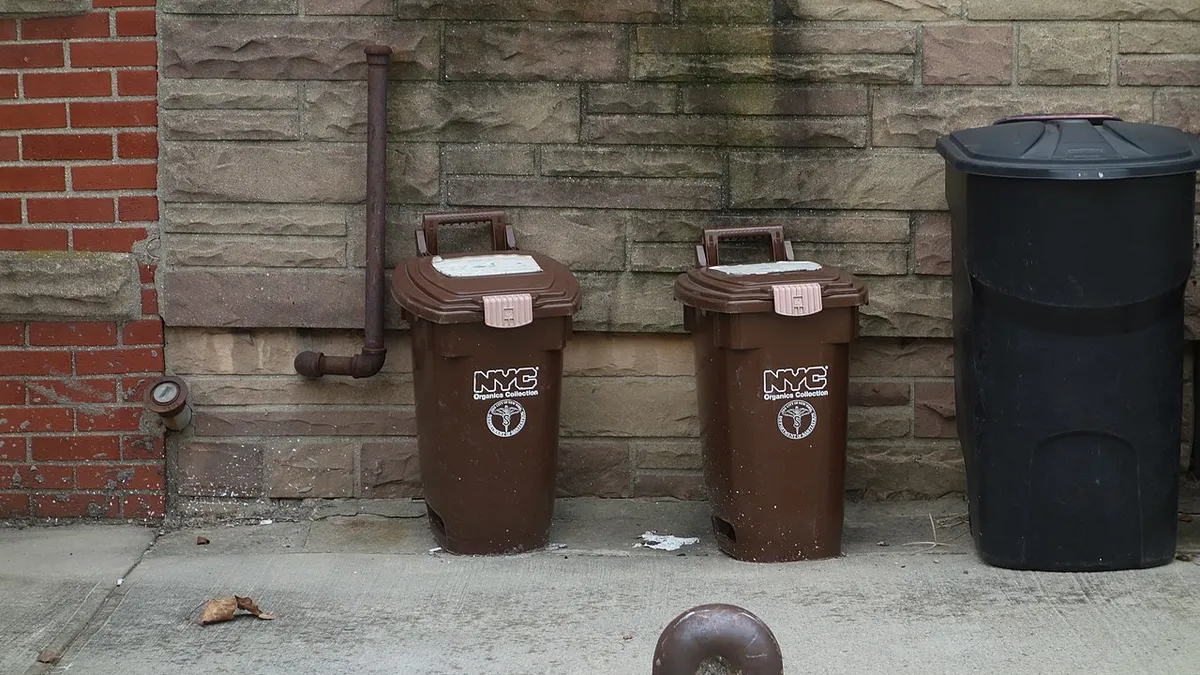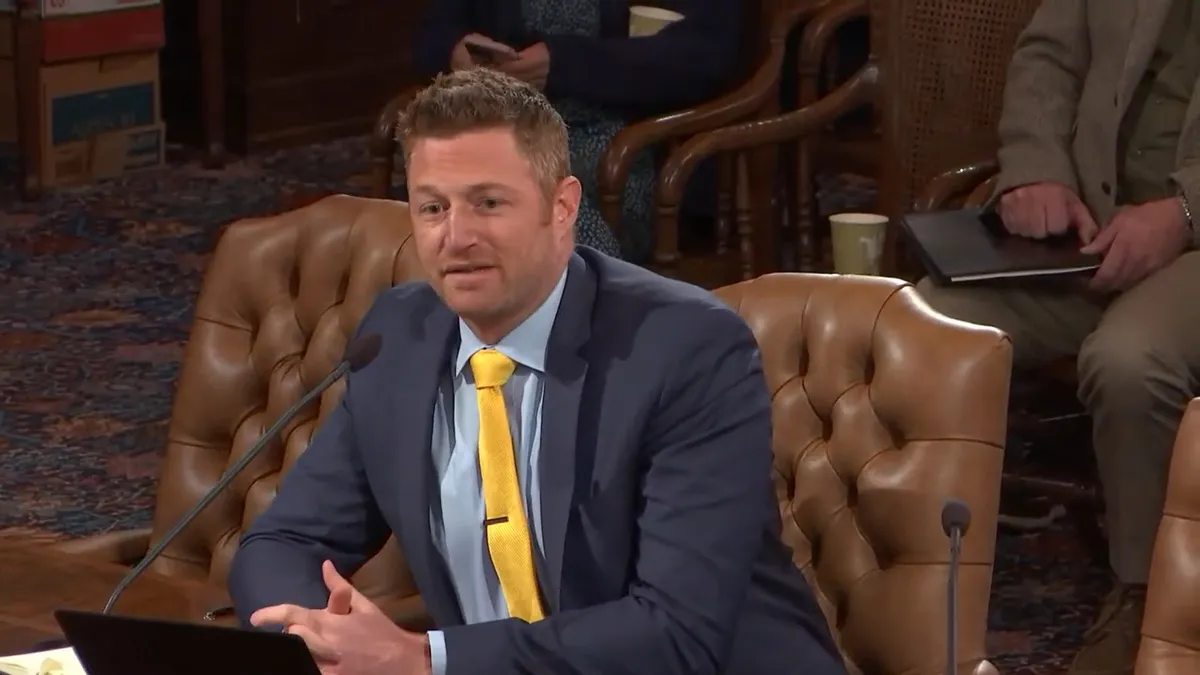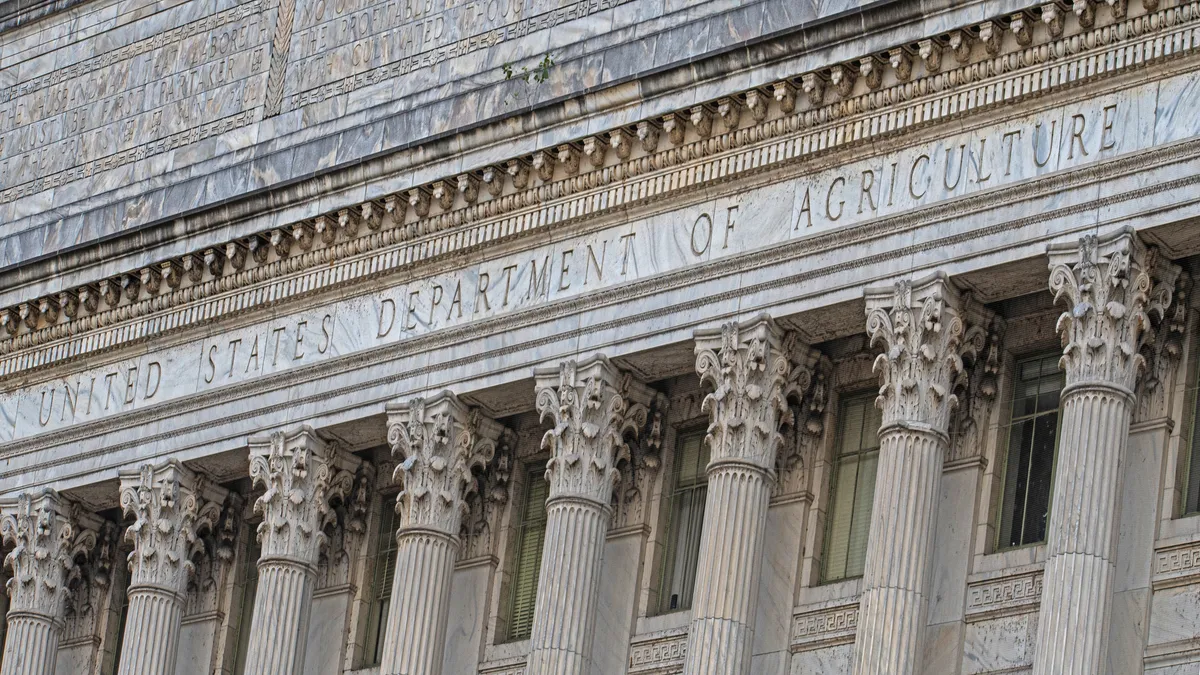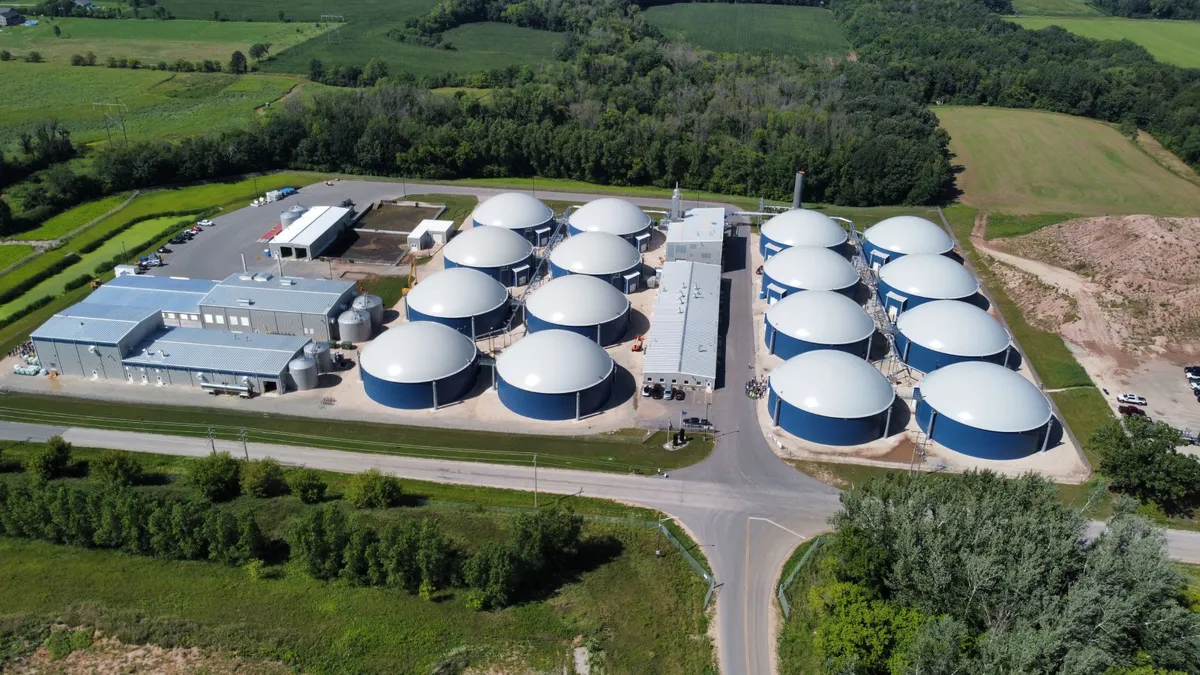Mayor Eric Adams is proposing eliminating the New York City community composting program and delaying rollout of curbside residential organics collection in certain boroughs by seven months as part of sweeping budget cuts.
The proposal, published Thursday, is part of across-the-board 5% budget cuts Adams has directed all city agencies to make as the city faces a projected budget shortfall beginning this fiscal year and extending into future years. The mayor has indicated an additional 5% cut may be necessary again in January.
The cuts would have ripple effects throughout the city’s management of organics and waste: reducing litter cleanup, shuttering farmer’s market food waste drop-off sites and ending funding for several mid-sized community composting sites, those familiar with the funding said.
“It’s a tremendous loss,” Beth Slepian, vice chair of the Brooklyn Solid Waste Advisory Board, said. “This creates a huge access issue for people to composting.”
In response to a request for comment, the mayor’s office cited a press conference held by the mayor Tuesday in which he said “I’m angry also” about the cuts.
“Instead of doing that budget that I am excited about doing, we have to move in another direction and look at these cost savings to continue to have our city operate and to abide by the law,” Adams said.
Council Speaker Adrienne Adams and Council Finance Chair James Brannan released a statement last week indicating skepticism about the planned cuts, saying they are “too blunt and not the prudent or sole choice.” The city council did not vote to approve a round of budget cuts last year, but the leaders said in their statement this year that they would negotiate with the administration over the November plan.
Community composting fallout
New York City has funded local composting programs in various capacities since the NYC Compost Project began in 1993. Today, program partners divert more than 8.3 million pounds of organic waste each year, provide compost outreach and education to 600,000 city residents annually and train “master composters” through a city-run program, Justin Green, a partner in the program through his nonprofit Big Reuse, said.
Green, who runs compost operations in Gowanus and Queensbridge, said without the community composting program he’d be unable to pay operators for his two sites and may have to close them. That would remove two million annual pounds of organic waste processing capacity from the city, which Green said would be “devastating” for the communities that have come to expect a sustainable organic solution.
“The community’s very supportive of it,” Green said. “It’s unusual for communities to be like, ‘No, we want composting to happen in our community.’ There’s that effort because they see the benefit and our process allows them to be involved in helping to turn their waste into a benefit.”
The proposed cuts will impact 115 jobs in community composting, according to a petition circulated by GrowNYC urging the Adams administration to save the program. The proposed budget cuts would also impact 262 uniformed employees and 321 civilian employees across DSNY, according to the proposal.
Domingo Morales, founder of Compost Power, said “a lot of Black and brown people are going to lose their jobs,” many who are seeking a stable, green career path.
“It’s horrible for them. They take this job because there’s hopes of breaking these barriers, diversifying the green economy,” Morales said.
Morales got his start in Green City Force, an AmeriCorps program that works with young and unemployed public housing residents. The program placed him at a composting facility in Red Hook, where he received training and began a career that continues today.
But Morales said the facility, which was supported by DSNY, faced staffing challenges depending on the city’s financial health. Today, he’s turned his attention toward building composting programs at public housing sites without financial support from DSNY, in part because the agency laid him off during the coronavirus pandemic.
He describes the budget uncertainty facing organizations involved in the community composting program as “cyclical torture.” Morales said the cuts, which occur just a few years after the pandemic affected funding for organics programs, should provoke a broader conversation about the detrimental impacts of relying on the whims of New York City’s budget.
“We're supporting something that is volatile,” Morales said. “We need to have a healthy conversation to build a system in New York City that is sustainable, regardless of what the mayor's office is able to afford.”
Green, executive director of Big Reuse, said he would need to lay off his 10-person community composting team and nine outreach employees, nearly half of his full-time staff. Lower East Side Ecology Center Executive Director Christine Datz-Romero said she would have to lay off 10 of her 17 full-time staff members.
Collection and infrastructure effects
The cuts will hamstring efforts to broaden community support for composting at a time when the city is planning to expand its services, several sources said. The U.S. EPA announced last week it was granting DSNY $2 million to support outreach efforts, but that’s outweighed by a proposed $4.1 million reduction in outreach and communications at the department in the coming fiscal year.
Vincent Gragnani, press secretary for DSNY, said in an email that the grant money would not be affected by the proposed budget cuts, but DSNY is “still working on an implementation plan for the grant.” He declined to comment further on the cuts.
DSNY is also proposing delaying the rollout of curbside organics collection in the Bronx and Staten Island from April to October of 2024. The program has already begun in Queens and Brooklyn.
Datz-Romero said residents will lose confidence in the city’s ability to handle organics as a result of the cuts and delays, comparing it to recycling budget cuts that affected DSNY in the late ‘90s and early 2000s.
“We have seen the credibility of recycling programs really suffer if there are suspensions,” Datz-Romero said. “People will scratch their heads to understand, so why is this delayed if it's that important?”
Datz-Romero said DSNY has already instructed her to begin the process of shutting down certain operations by Dec. 31 in preparation for the cuts. The LES Ecology Center had also been preparing to build and operate a composting site in the Canarsie neighborhood of Brooklyn when the cuts were announced last week. Now, despite having put in time and money to clear the site, receive the necessary permits, hire a construction manager and evaluate bid proposals for construction, DSNY is ending the plans.
“There’s a lot of work that has gotten done in preparation for this, and all of that is basically now wasted effort and money because the money to build the facility has disappeared,” Datz-Romero said.
Brenda Platt, director of ILSR's Composting for Community Initiative, said the loss of community composting outreach and training for new Master Composters will lead to less educated residents who feel less of a connection to the waste stream.
Platt notes that certain independent composting sites, including those run by Compost Power, will likely remain even after the budget cuts. But she said the loss of educational and training programs will hinder the growth of a system that builds “the social resilience of New York communities and the physical resilience of the infrastructure in New York.”
“They become these laboratories of seeding these people and these programs all throughout New York City,” Platt said. “This is really a devastating loss that's going to reverberate to dozens if not hundreds of other community gardens and composters in the city.”
New York City Council Sanitation Chair Sandy Nurse said councilmembers like herself had hoped that language in the Zero Waste Act passed in June would have done more to protect the community composting program. One of the provisions of the law requires DSNY to ensure there are at least 30 organic waste drop-off sites citywide, with at least three in each borough.
She said councilmembers may propose new legislation to better protect the program's partners and the education, outreach and composting work they do.
"We're going to fight and try as hard as possible to restore funding," Nurse said. “To have such a drastic cut off in such a short period of time is truly unacceptable.”






















